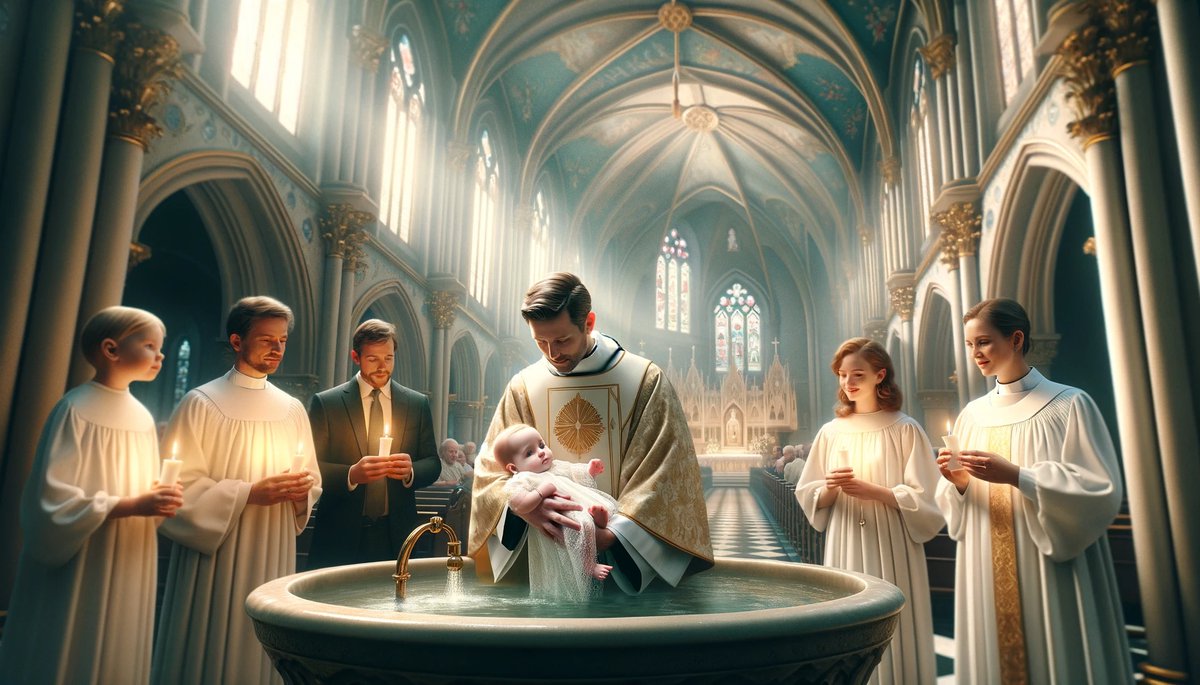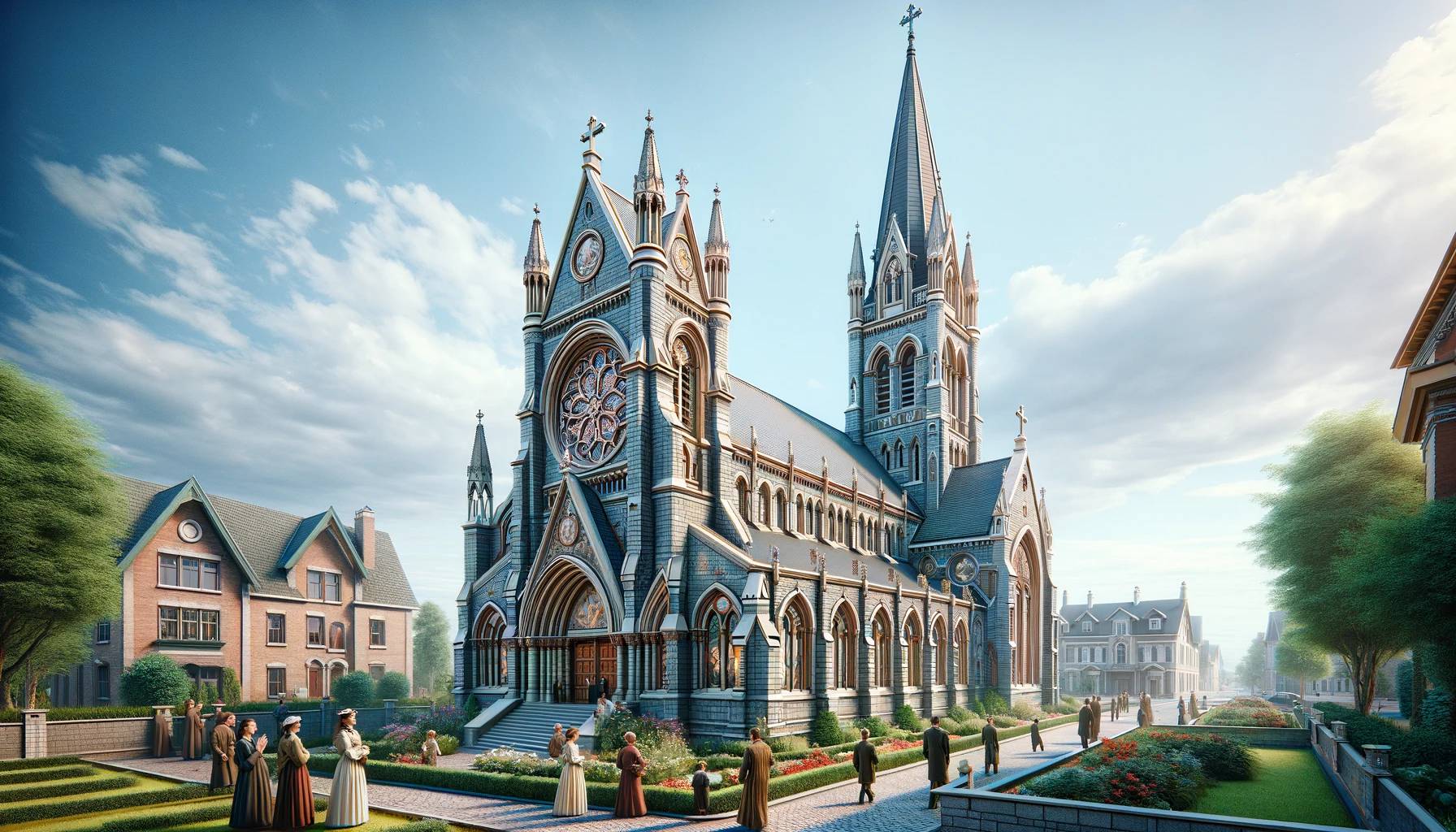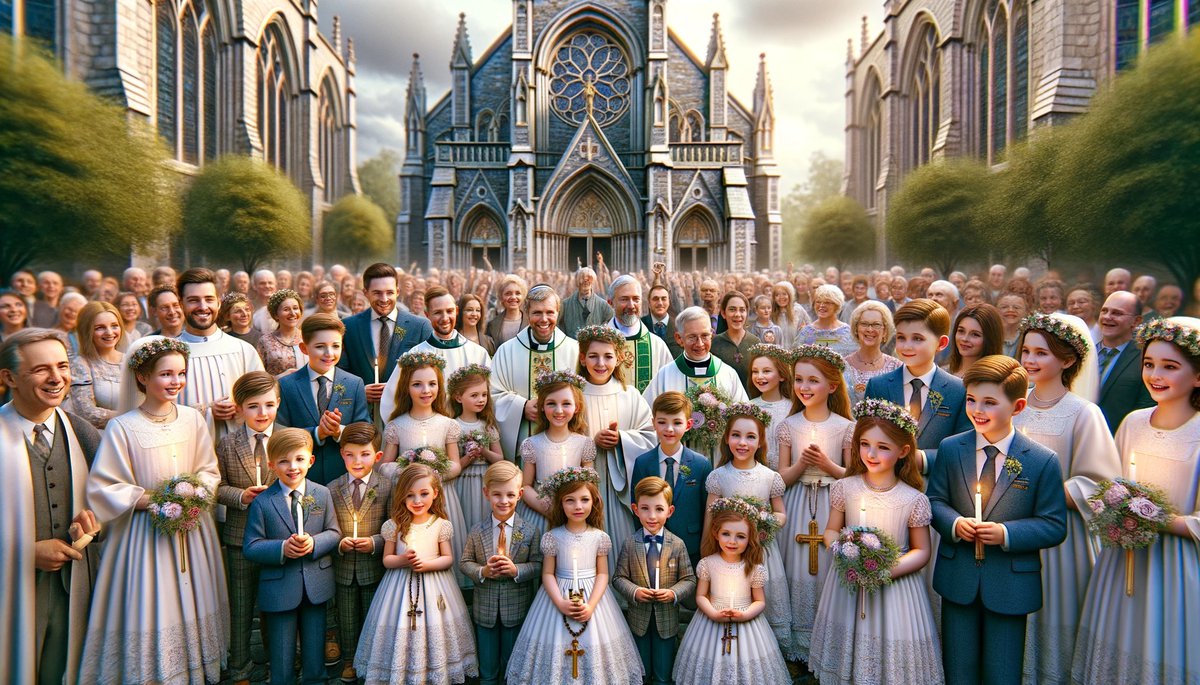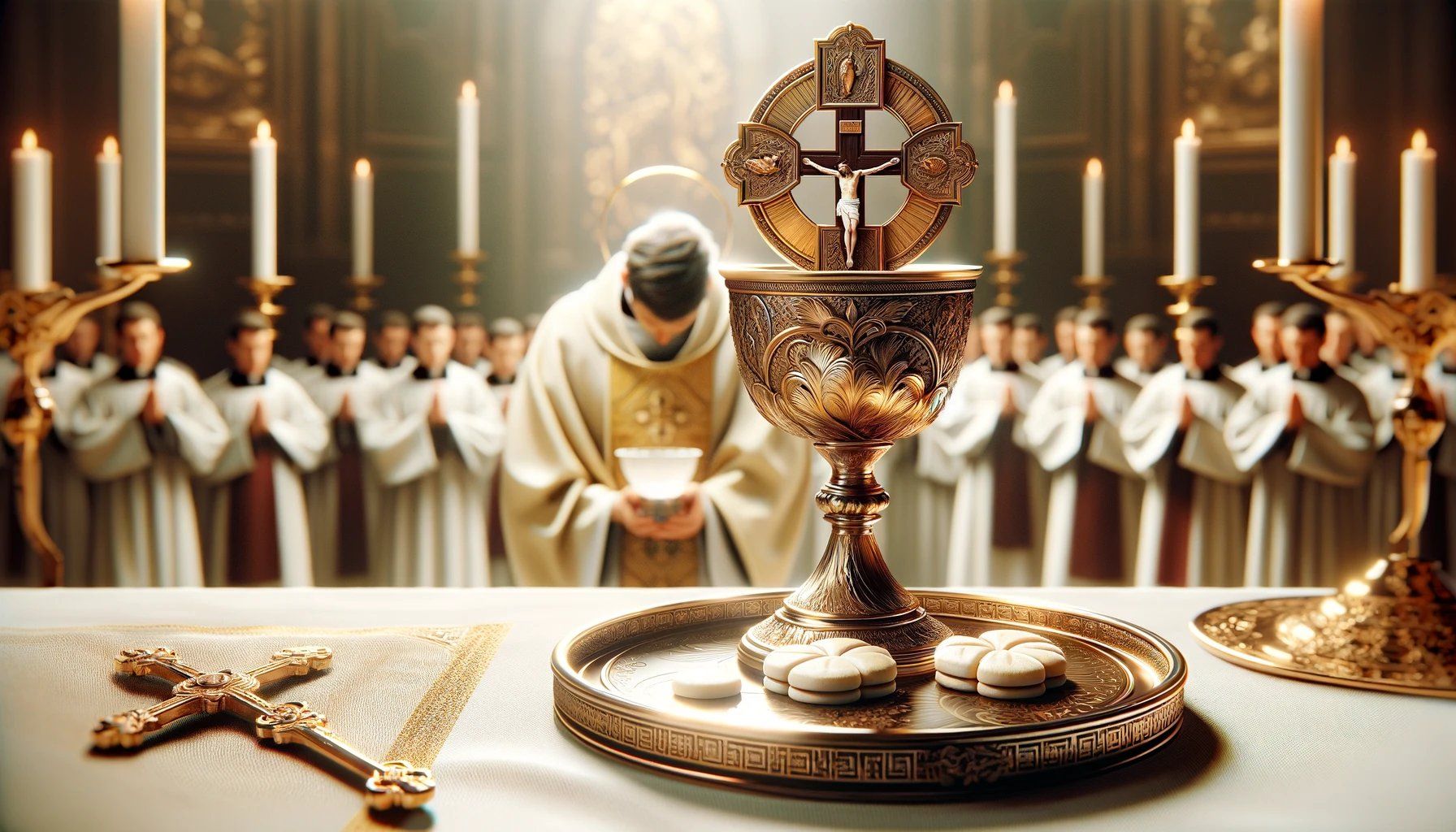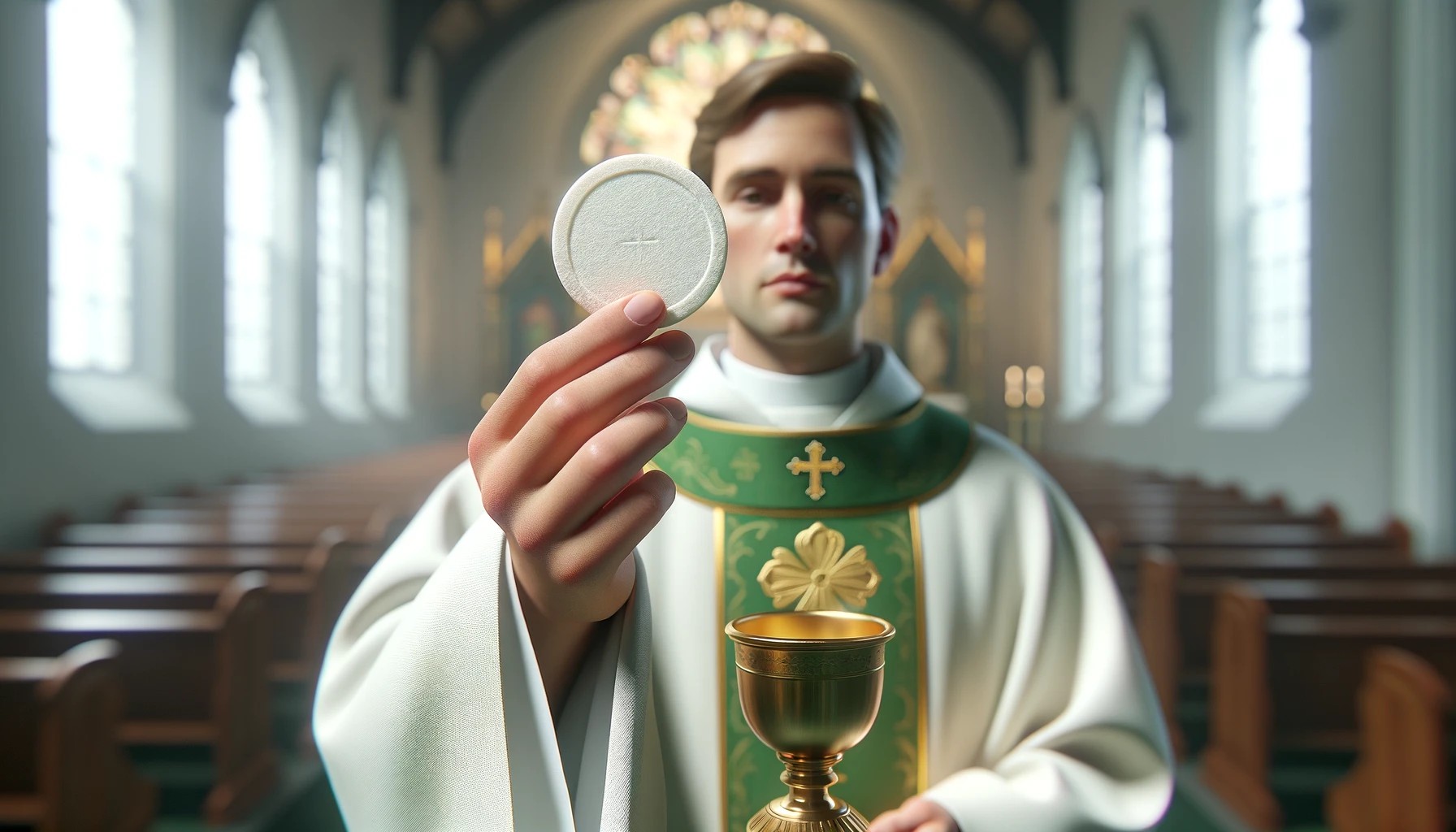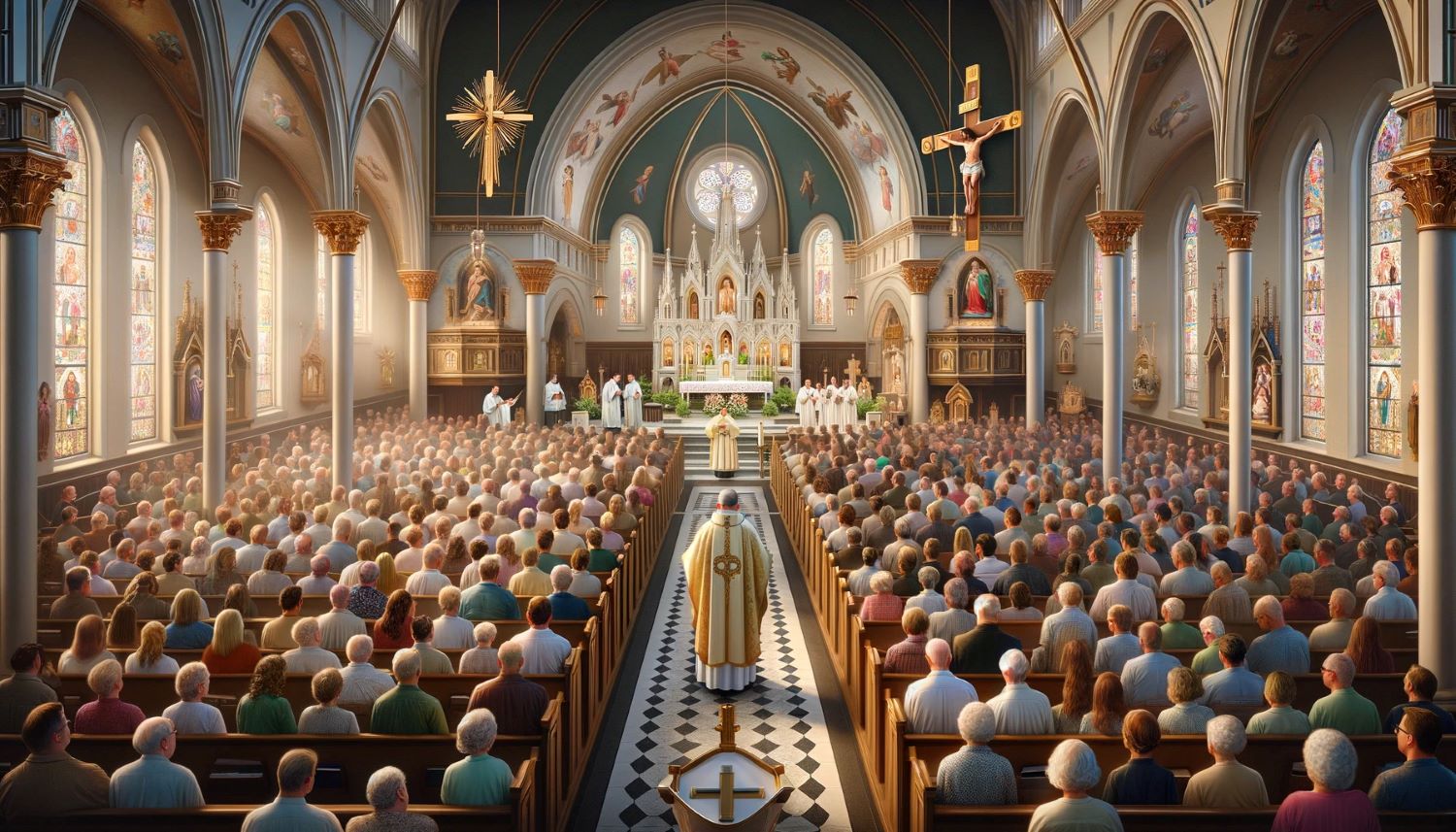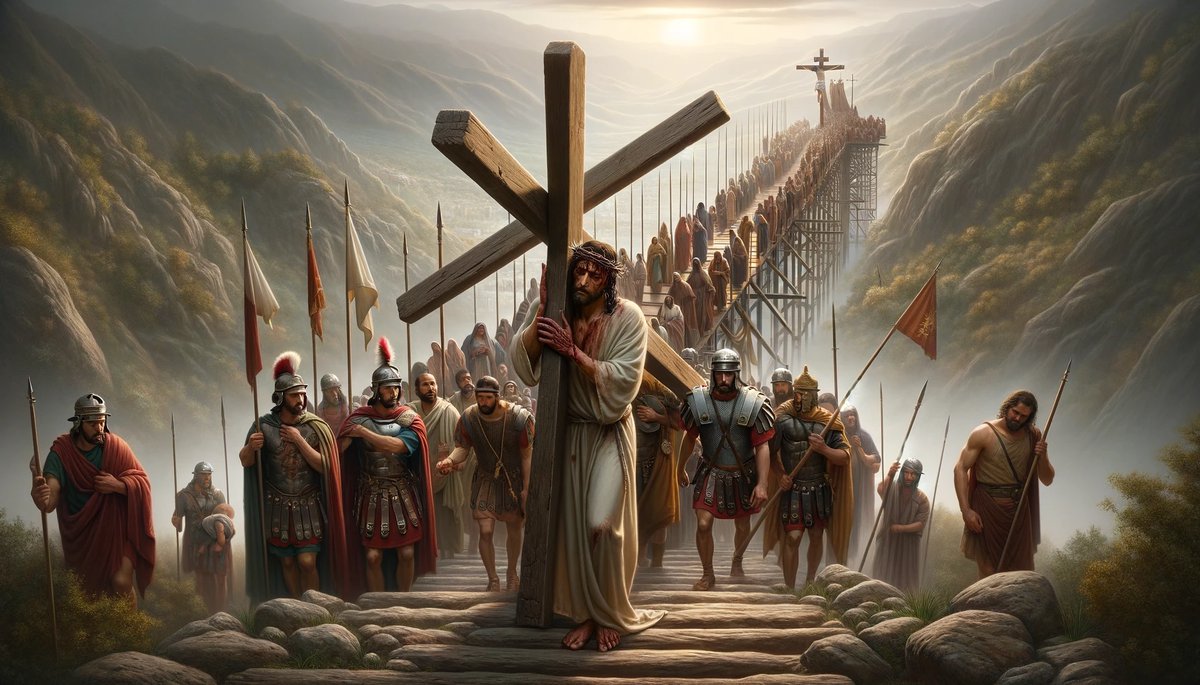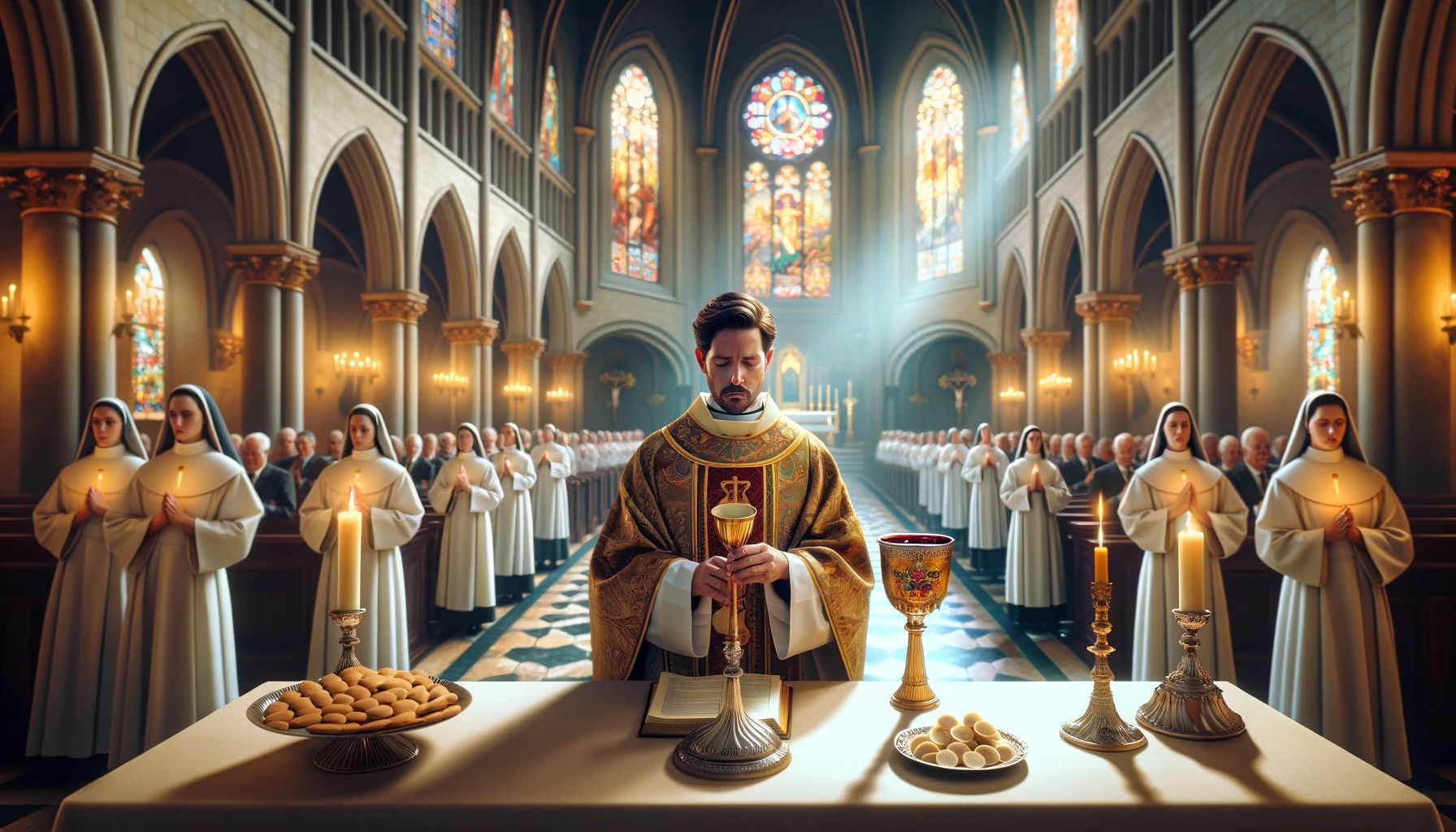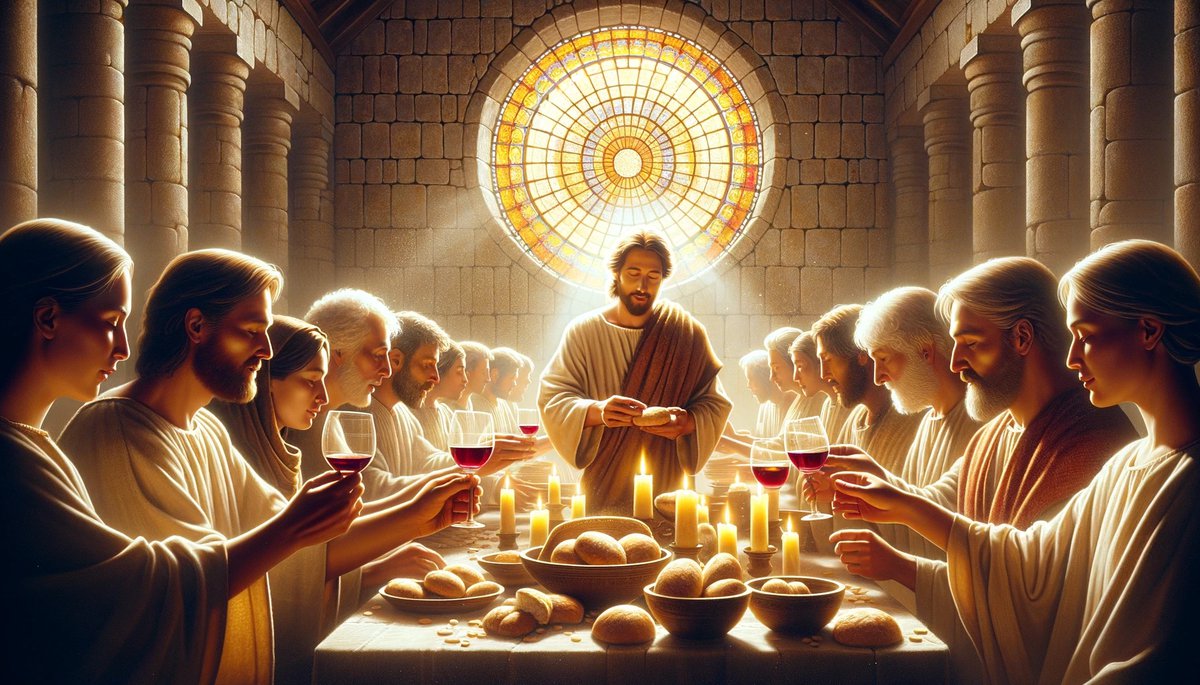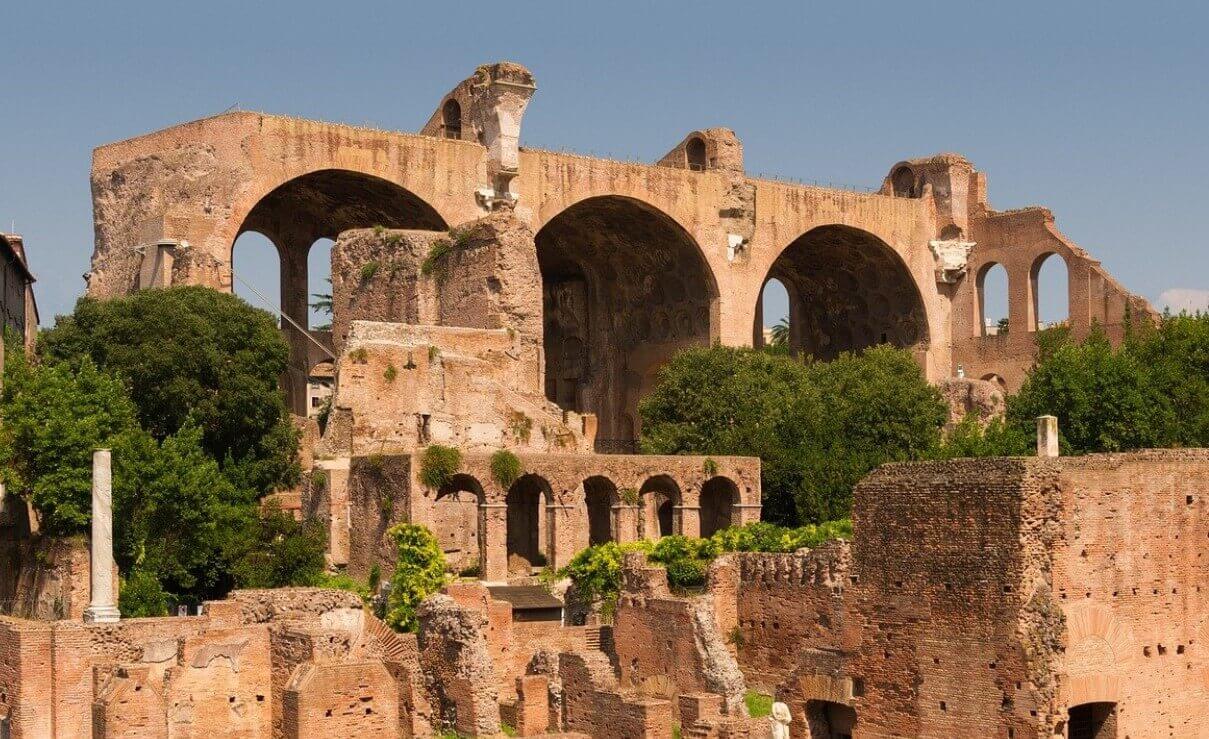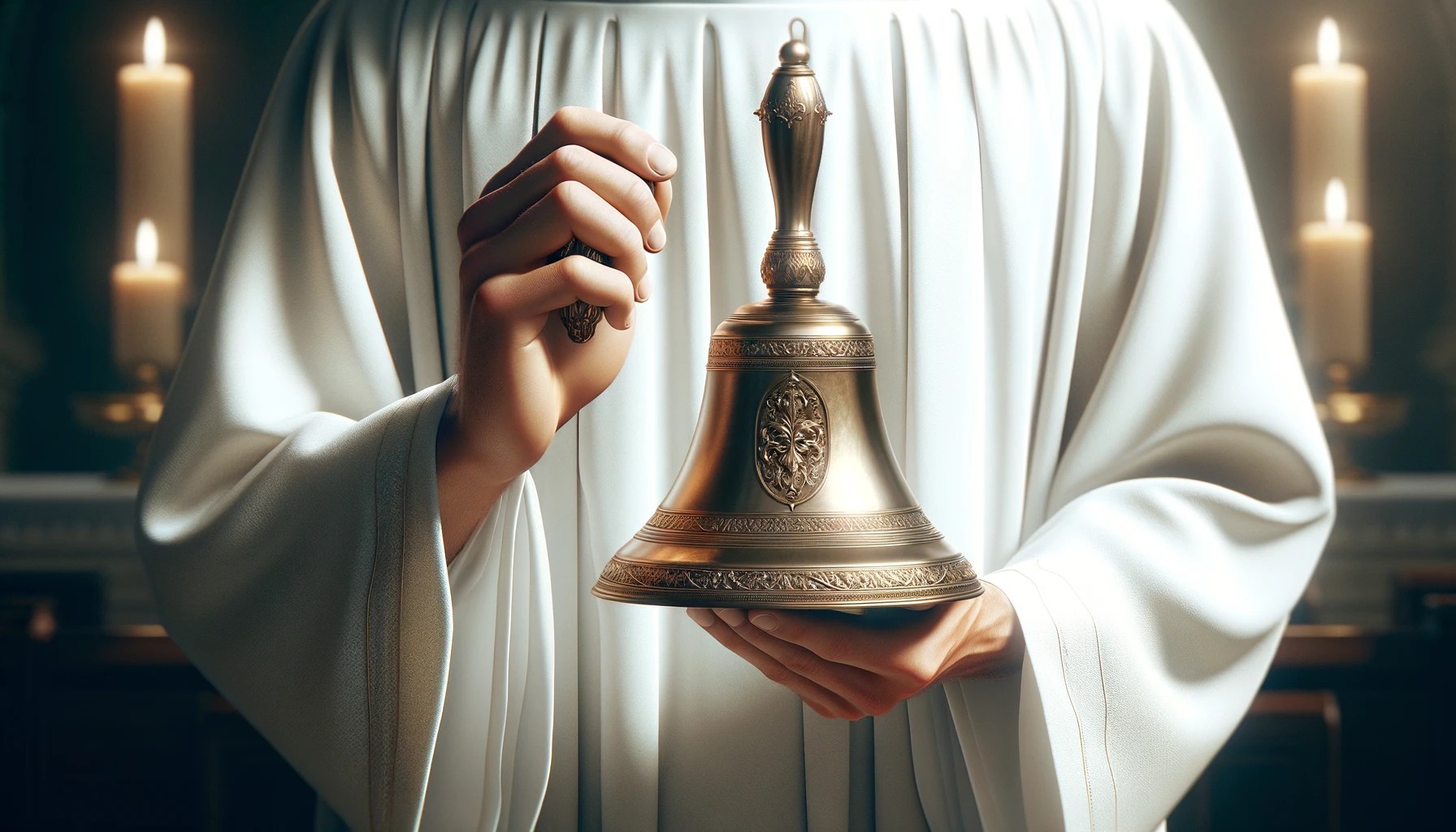Home>Theology and Spirituality>What Churches Are In Communion With The Roman Catholic Church
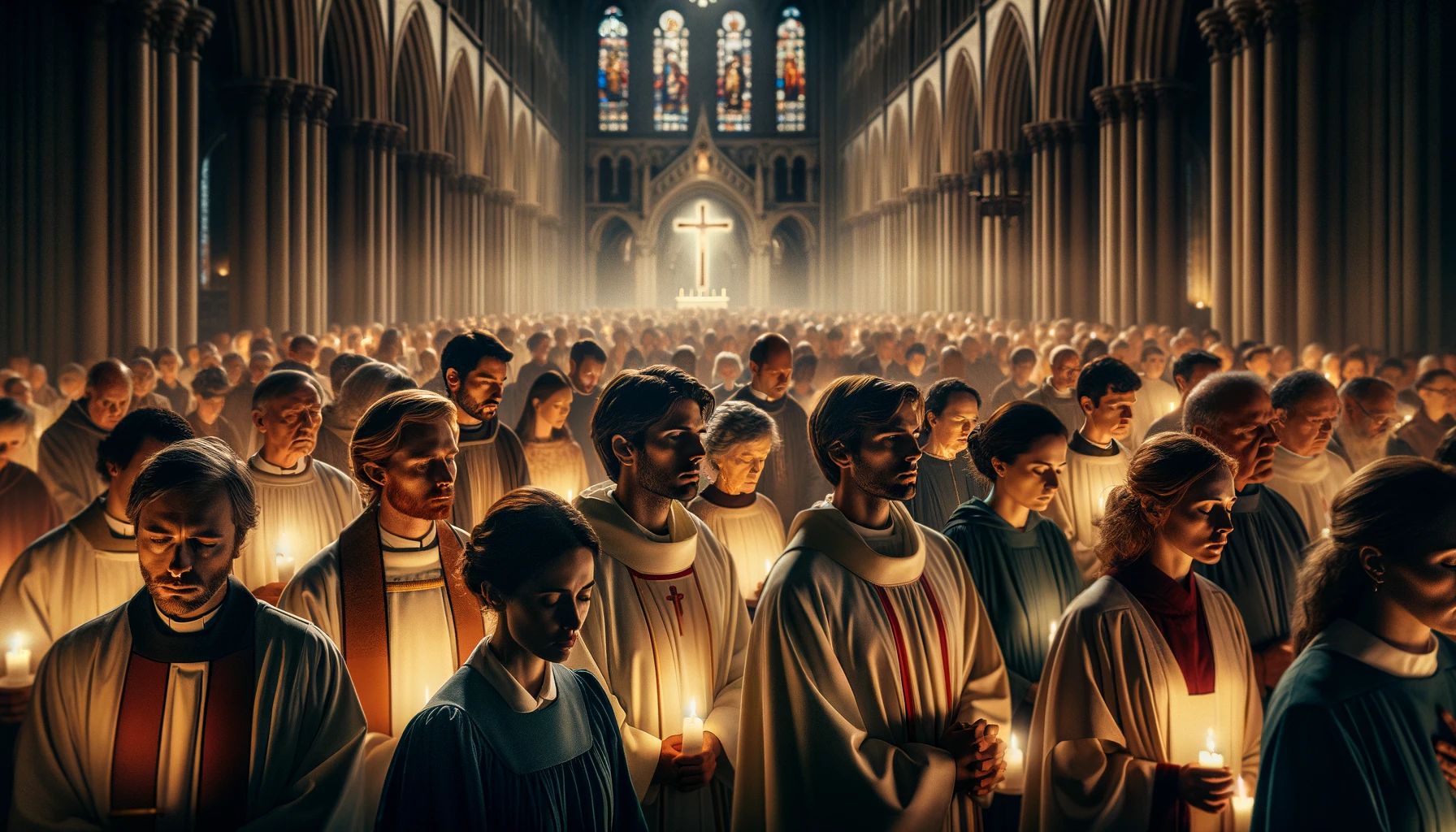

Theology and Spirituality
What Churches Are In Communion With The Roman Catholic Church
Published: February 24, 2024
Jason DeRose, Managing Editor at Christian.net, uses his expertise in religion and journalism to deepen understanding of faith's societal impacts. His editorial leadership, coupled with a strong academic background, enriches the platform’s diverse content, earning him recognition in both journalism and religious circles.
Discover the churches in communion with the Roman Catholic Church and explore their theology and spirituality. Learn about the diverse religious affiliations within this community.
(Many of the links in this article redirect to a specific reviewed product. Your purchase of these products through affiliate links helps to generate commission for Christian.net, at no extra cost. Learn more)
Table of Contents
Introduction
The Roman Catholic Church, with its rich history and global presence, is a prominent institution within Christianity. It is a spiritual home to over a billion people worldwide, making it the largest Christian denomination. The Catholic Church's influence extends across diverse cultures and societies, shaping the spiritual, moral, and social fabric of countless communities.
In addition to the Roman Catholic Church, there are other Christian denominations that share varying degrees of communion with it. These relationships, whether full or partial communion, reflect the complex and interconnected nature of the Christian faith. Understanding these connections is essential for grasping the broader landscape of Christianity and the diverse expressions of its beliefs and practices.
In this article, we will explore the concept of communion within the context of the Roman Catholic Church. We will delve into the distinctions between the Roman Catholic Church, the Eastern Catholic Churches, and other Christian denominations that share communion with the Roman Catholic Church. By examining these relationships, we aim to provide insight into the interconnectedness of Christian traditions and the significance of unity and diversity within the broader Christian community.
As we embark on this exploration, it is important to approach the topic with an open mind and a spirit of curiosity. The bonds of communion between different Christian churches offer a glimpse into the diverse tapestry of Christian traditions, each contributing unique perspectives and practices to the collective body of believers. Through this journey, we will gain a deeper appreciation for the interconnectedness of Christian faith and the varied expressions of spirituality that enrich the global Christian community.
Roman Catholic Church
The Roman Catholic Church, often simply referred to as the Catholic Church, is the largest Christian church, with over a billion members worldwide. It traces its origins to the teachings and ministry of Jesus Christ, as passed down through the apostolic succession and the leadership of the Bishop of Rome, also known as the Pope. The Catholic Church's doctrinal and theological foundations are rooted in sacred scripture, apostolic tradition, and the magisterium, which is the teaching authority of the church.
Central to Catholic belief is the sacramental life, which includes the celebration of the Eucharist, also known as the Mass, as well as the other six sacraments. The church's teachings encompass a wide range of moral, social, and theological principles, providing guidance for its members in matters of faith and practice.
The Catholic Church is organized into a hierarchical structure, with the Pope at the apex, followed by bishops, priests, and deacons. This hierarchical structure facilitates the administration of the church's sacraments, pastoral care, and doctrinal oversight.
The church's influence extends beyond matters of faith, as it has historically played a significant role in education, healthcare, social justice, and humanitarian efforts around the world. Its global network of schools, hospitals, and charitable organizations reflects its commitment to serving the needs of communities and individuals, regardless of their religious affiliation.
The Catholic Church's rich tradition of liturgy, art, music, and theology has left an indelible mark on global culture, shaping the artistic and intellectual heritage of numerous societies throughout history. Its theological contributions, including the writings of influential figures such as St. Augustine, St. Thomas Aquinas, and St. Teresa of Ávila, continue to inspire and inform theological discourse within and beyond the Catholic tradition.
As a global institution, the Catholic Church embraces a diverse array of cultural expressions and traditions, reflecting the universality of the Christian message. Its commitment to ecumenism, interfaith dialogue, and social justice underscores its efforts to promote unity, understanding, and compassion in a world marked by diversity and complexity.
The Roman Catholic Church's enduring presence and profound impact on human history make it a significant force within the broader Christian tradition and a vital contributor to the spiritual and moral fabric of global society.
Eastern Catholic Churches
The Eastern Catholic Churches, also known as the Eastern Rite Catholic Churches, are autonomous, self-governing Christian communities within the Catholic Church that trace their origins to the early Christian communities of the Eastern Mediterranean and the Middle East. These churches are in full communion with the Bishop of Rome, the Pope, and acknowledge his role as the spiritual leader of the Catholic Church. Despite their communion with Rome, the Eastern Catholic Churches maintain their distinct liturgical, theological, and spiritual traditions, which are deeply rooted in the rich heritage of Eastern Christianity.
One of the defining features of the Eastern Catholic Churches is their adherence to various Eastern Christian liturgical traditions, such as the Byzantine, Alexandrian, Antiochian, Armenian, and Chaldean traditions. Each tradition encompasses unique liturgical rites, prayers, chants, and spiritual practices that reflect the diverse cultural and theological influences of the regions where these churches originated. The celebration of the Eucharist and other sacraments within the Eastern Catholic Churches is characterized by the use of ancient languages, intricate liturgical rituals, and profound spiritual symbolism, offering a distinctive expression of Christian worship.
The theological and spiritual teachings of the Eastern Catholic Churches are shaped by the writings of the early Church Fathers, the mystical traditions of Eastern Christian spirituality, and the theological insights of prominent Eastern theologians. These traditions emphasize theosis, or the process of divinization, which underscores the transformative journey of believers toward union with God. The emphasis on contemplative prayer, asceticism, and the mystical dimensions of faith distinguishes the spiritual ethos of the Eastern Catholic Churches and contributes to the broader tapestry of Christian spirituality.
In addition to their spiritual and liturgical distinctiveness, the Eastern Catholic Churches play a vital role in preserving and promoting the cultural heritage of the Eastern Christian traditions. Through their vibrant iconography, sacred music, and architectural styles, these churches serve as custodians of a rich artistic and cultural legacy that spans centuries. Their commitment to preserving and transmitting these cultural treasures reflects a deep sense of continuity with the historical and spiritual legacy of Eastern Christianity.
The Eastern Catholic Churches, with their diverse traditions and vibrant spiritual heritage, enrich the Catholic Church with their unique perspectives and contribute to the unity of the universal Church. Their presence serves as a testament to the diverse expressions of Christian faith and the enduring vitality of Eastern Christian spirituality within the broader communion of the Catholic Church.
Churches in Full Communion with the Roman Catholic Church
The concept of full communion within the Christian tradition signifies a profound spiritual and ecclesial bond between different Christian churches. In the case of the Roman Catholic Church, several Christian denominations share a state of full communion, acknowledging the authority of the Pope and embracing a common understanding of faith and sacraments. These churches, while maintaining their distinct traditions and governance, are united with the Roman Catholic Church in matters of doctrine, liturgy, and spiritual fellowship.
One of the most prominent examples of a church in full communion with the Roman Catholic Church is the Maronite Church. Originating from the ancient traditions of the Syriac Christian community in the Middle East, the Maronite Church has preserved its unique liturgical rites, spirituality, and ecclesiastical traditions while embracing communion with the Bishop of Rome. The Maronite Church's vibrant heritage, characterized by its rich liturgical music, devotion to St. Maron, and deep-rooted monastic traditions, enriches the universal Church and serves as a testament to the diversity of Christian expression within the communion of the Catholic Church.
Another significant example is the Ukrainian Greek Catholic Church, which traces its roots to the Christian communities of Kyivan Rus' and the Byzantine tradition. The Ukrainian Greek Catholic Church's adherence to the Byzantine liturgical tradition, its theological heritage, and its steadfast witness to the Christian faith amidst historical challenges exemplify the resilience and vitality of Eastern Christian spirituality within the communion of the Catholic Church. The church's commitment to preserving its cultural and religious identity while embracing full communion with Rome reflects the dynamic interplay between unity and diversity within the global Christian community.
Additionally, the Syro-Malabar Church, the Chaldean Catholic Church, and the Coptic Catholic Church are among the other Eastern Catholic Churches in full communion with the Roman Catholic Church. Each of these churches brings its distinct theological, liturgical, and spiritual contributions to the universal Church, fostering a rich tapestry of Christian traditions united in their shared commitment to the teachings and spiritual leadership of the Pope.
The presence of these churches in full communion with the Roman Catholic Church underscores the diverse and interconnected nature of the Christian faith. Their vibrant traditions, theological insights, and spiritual practices enrich the Catholic Church and contribute to the unity of the broader Christian community, serving as a testament to the enduring vitality of Christian faith across diverse cultural and historical contexts.
Churches in Partial Communion with the Roman Catholic Church
Partial communion refers to a state in which Christian churches share some elements of faith and sacramental life with the Roman Catholic Church while maintaining distinct theological perspectives and ecclesial structures. This nuanced relationship reflects the complex dynamics of unity and diversity within the broader Christian tradition. While not fully integrated into the communion of the Roman Catholic Church, these churches maintain significant points of convergence and dialogue, fostering a spirit of mutual respect and understanding.
One notable example of a church in partial communion with the Roman Catholic Church is the Eastern Orthodox Church. Rooted in the ancient traditions of Eastern Christianity, the Eastern Orthodox Church shares a common heritage with the Catholic Church, including the early ecumenical councils, liturgical practices, and foundational theological tenets. Despite historical divisions and theological differences, the Eastern Orthodox Church and the Roman Catholic Church recognize each other's apostolic succession and sacraments, laying the groundwork for ongoing theological dialogue and efforts toward reconciliation.
Another significant example is the Anglican Communion, which comprises a global network of autonomous churches that trace their origins to the Church of England. While the Anglican Communion maintains its distinct governance and theological identity, it shares historical and liturgical ties with the Roman Catholic Church. The dialogue between the Anglican Communion and the Catholic Church has led to mutual recognition of certain aspects of faith and practice, fostering a spirit of cooperation and shared witness in matters of social justice, ethical concerns, and theological dialogue.
The Old Catholic Church, with its roots in the European Christian traditions, represents another example of a church in partial communion with the Roman Catholic Church. While maintaining its independent governance and theological distinctiveness, the Old Catholic Church shares historical and liturgical connections with the Catholic Church. This relationship has facilitated ongoing dialogue and cooperation in areas of common concern, reflecting a commitment to fostering unity and understanding within the broader Christian community.
The concept of partial communion underscores the diverse expressions of Christian faith and the ongoing pursuit of unity amidst theological and historical complexities. These churches, while maintaining their distinct identities, contribute to the rich tapestry of Christian traditions and exemplify the spirit of dialogue, mutual respect, and shared witness within the broader communion of the Christian faith.
Conclusion
In conclusion, the concept of communion within the context of the Roman Catholic Church encompasses a rich tapestry of relationships with other Christian churches, reflecting the interconnectedness and diversity of the broader Christian tradition. From the Roman Catholic Church's global presence and rich theological heritage to the vibrant traditions of the Eastern Catholic Churches and the nuanced relationships with churches in full and partial communion, the landscape of Christian communion offers a profound glimpse into the unity and diversity of the Christian faith.
The Roman Catholic Church, as the largest Christian denomination, stands as a testament to the enduring impact of Christian faith on global society. Its rich tradition of liturgy, theology, and social engagement has left an indelible mark on human history, shaping the spiritual and moral fabric of diverse communities. The Catholic Church's commitment to ecumenism, interfaith dialogue, and social justice underscores its efforts to promote unity, understanding, and compassion in a world marked by diversity and complexity.
The Eastern Catholic Churches, with their distinct liturgical, theological, and spiritual traditions, enrich the Catholic Church with their unique perspectives and contribute to the unity of the universal Church. Their vibrant heritage and commitment to preserving the cultural and religious identity of Eastern Christianity serve as a testament to the enduring vitality of Christian faith across diverse cultural and historical contexts.
Furthermore, the relationships with churches in full and partial communion highlight the dynamic interplay between unity and diversity within the broader Christian tradition. The shared spiritual and sacramental bonds with churches in full communion, such as the Maronite Church and the Ukrainian Greek Catholic Church, underscore the diverse expressions of Christian faith united in their shared commitment to the teachings and spiritual leadership of the Pope. Similarly, the nuanced relationships with churches in partial communion, including the Eastern Orthodox Church, the Anglican Communion, and the Old Catholic Church, exemplify the ongoing pursuit of unity amidst theological and historical complexities, fostering a spirit of dialogue, mutual respect, and shared witness within the broader communion of the Christian faith.
In essence, the concept of communion within the Roman Catholic Church transcends doctrinal and ecclesial boundaries, offering a profound reflection of the unity and diversity inherent in the Christian faith. As we navigate the complex tapestry of Christian communion, we are reminded of the interconnectedness of diverse Christian traditions and the enduring pursuit of unity, understanding, and mutual respect within the broader Christian community.
